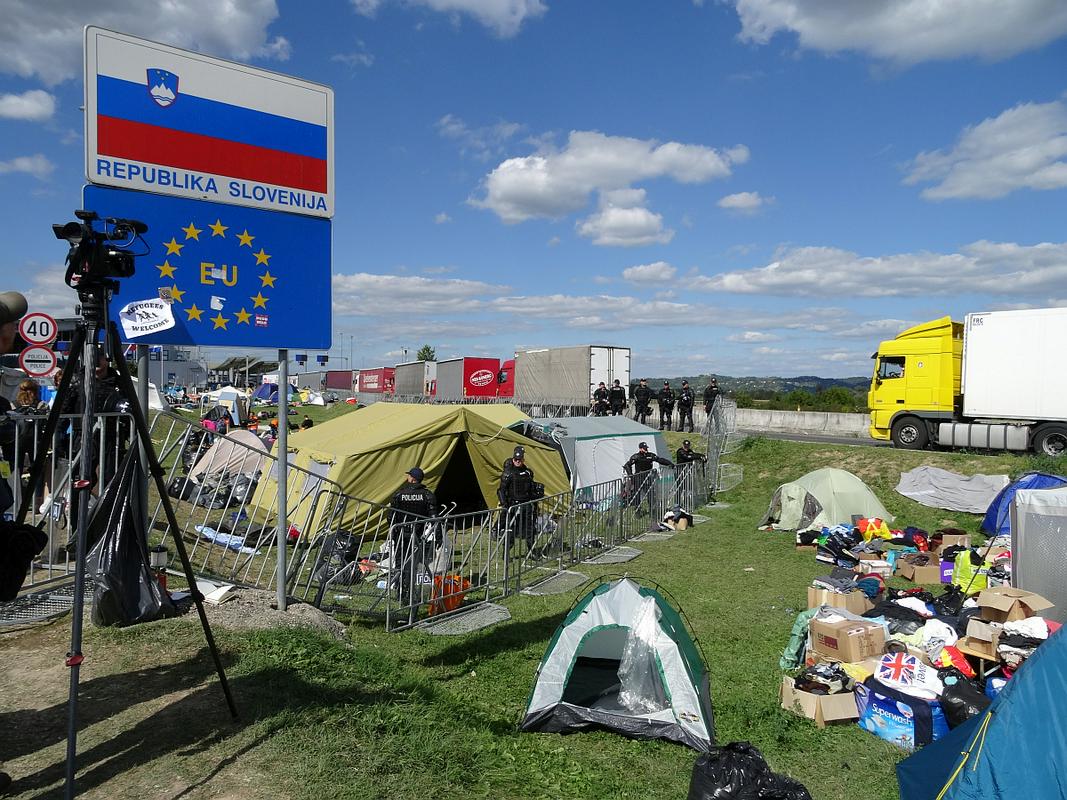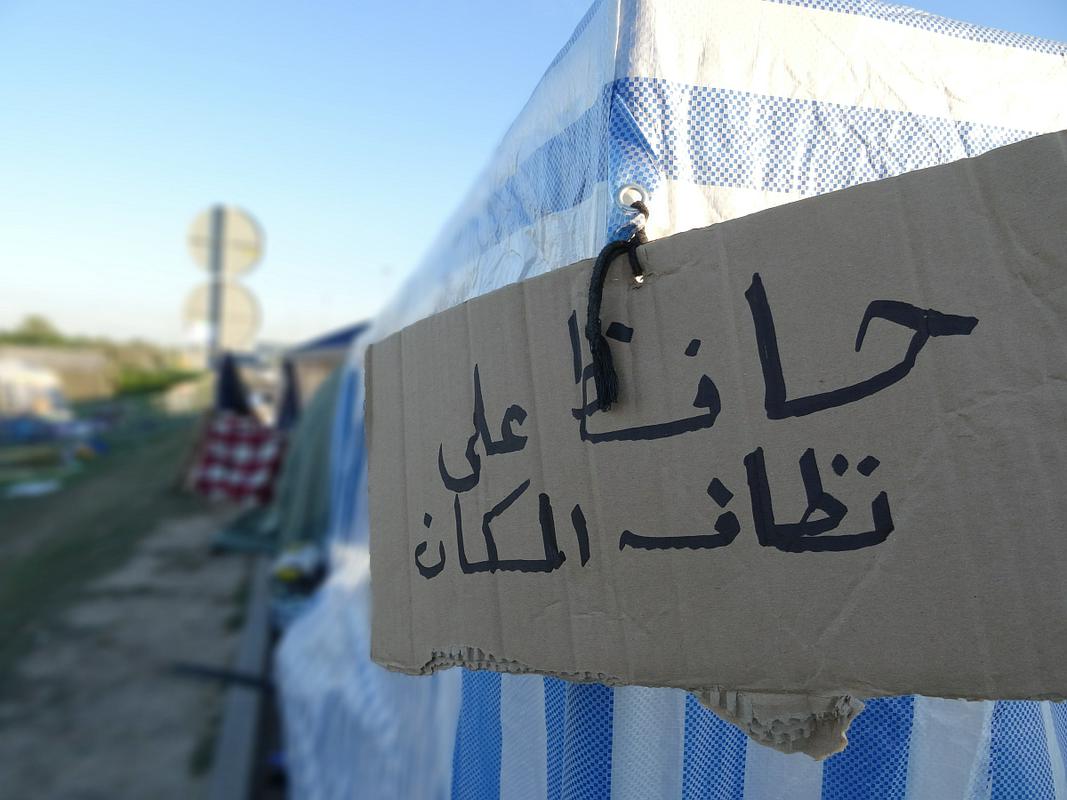

From Thursday till Monday morning Obrežje was a symbol of the confused European and Slovenian policy regarding refugees and migrants. Since the arrival of the first Syrian refugees to the border crossing on Thursday afternoon, during the weekend several hundreds of refugees, mainly from Syria, Afghanistan, and Iraq gathered at the barriers and the cordon of policemen in full riot gear. They asked and demanded to be allowed free crossing through Slovenia to Austria.
The last larger group of migrants was accepted into the country, and taken by buses into the reception centre in Brežice on early Monday morning. Thus, after the initial categorical refusal, finally all the waiting refugees were allowed to enter Slovenia, but only after several hundred people waited outdoors for days, also during the rain – on the Slovenian territory. During that time volunteers from Slovenia, Croatia, Austria and other countries, as private persons or as representatives of several humanitarian organisations, took care of the refugees.
One of them was also Frida, a volunteer from Germany, who interrupted her vacation in Croatia when she learned what was going on. "This kind of behaviour is a true shame for Europe. All the work is done by volunteers, most of them self-organized," she explained. On the first day refugees had nothing, and after four days they were still without running water.
The interesting fact is that among the most organized volunteers who first offered their aid were volunteers from Austria. They were self-organized and started establishing the infrastructure. Also volunteers from the Czech Republic and from Germany were present. Frida explained about the international convoy of volunteers who come to the Balkan states as a self-organized group, and not as a part of a larger humanitarian organisation. Frida emphasized the importance of self-organisation, as according to her "even UNHCR, which is professionally dealing with erection of refugee camps, needs a lot of time."
Refugees waiting on the Slovenian territory
The conditions were especially poor at the beginning. "During the rain, before the tents were erected, people were lying outside, on the ground, and it was cold," Frida said. Although the refugees were waiting on the Slovenian territory, because of which on Monday policemen moved the barrier for several meters towards Croatia, help was mostly given by individuals, and not by the state. Jernej Agrež from the Adra humanitarian organisation confirmed it: "The Civil Protection did give material aid in the form of tents, benches, and tables, scouts contributed a large part of housing capacities, while most of other things, namely food, water, smaller tents and other equipment were donated."
And how would Agrež - obviously very tired - comment the fact that Slovenia didn't offer more help to people who remained at the border outside for days? "What can I say? Our task was to respond to such situations, and I think we did it well. I must honestly admit that I don't know what duties were assigned to other institutes, I was only familiar with the operation of the non-governmental organisations coordinated by the Administration of the Republic of Slovenia for Civil Protection and Disaster Relief."
As we were informed by the Administration of the Republic of Slovenia for Civil Protection and Disaster Relief, they also "participated at setting camps near Obrežje and in Brežice, provided clothes, footwear, and food every day from Saturday morning." But no specific data have been given to us regarding what kind of help was given, e.g. the number of tents, and what kind of equipment.
Aid was mostly given by individuals
We should emphasize that people at our border urgently needed help in the form of tents, food, clothes etc.. It was given mostly by individuals, and at their own expense. But considering the conditions, the organisation was very good. Also the Croatian representative of the UN agency for refugees UNHCR said the organisation was exceptional. She especially praised the fact that young women on Sunday spent the night preparing warm meals for the refugees. "When I saw the commitment of the young people, I forgot the comments I had read in the portals," said one of the UNHCR representatives who were there.
Boris vasev


































































